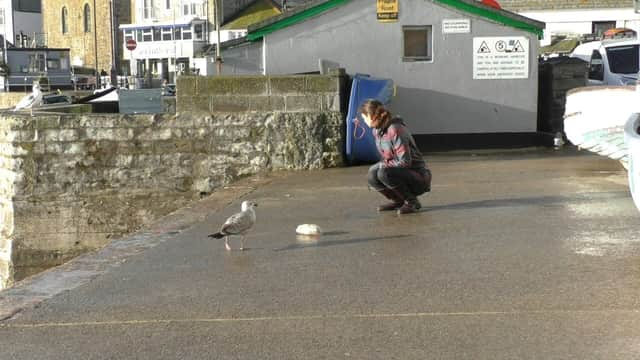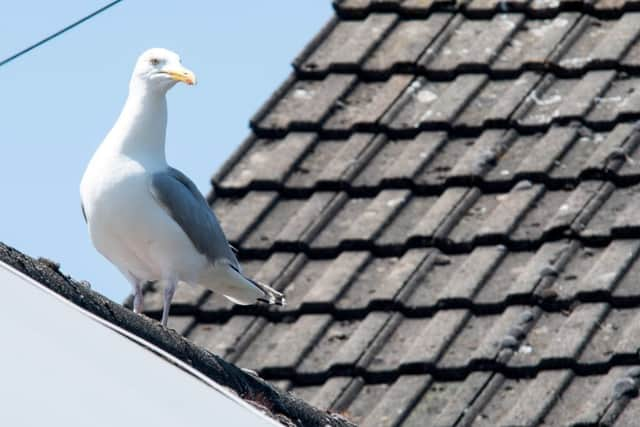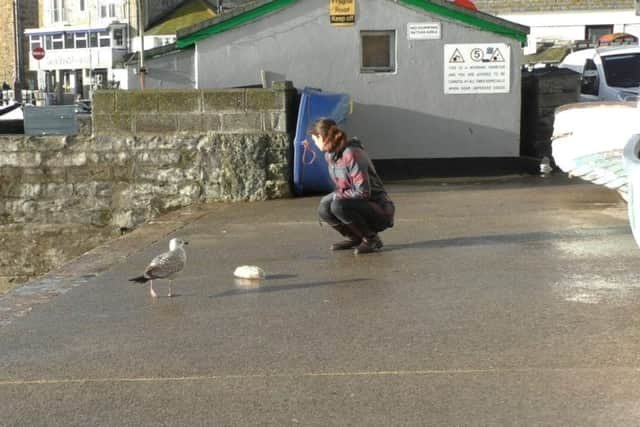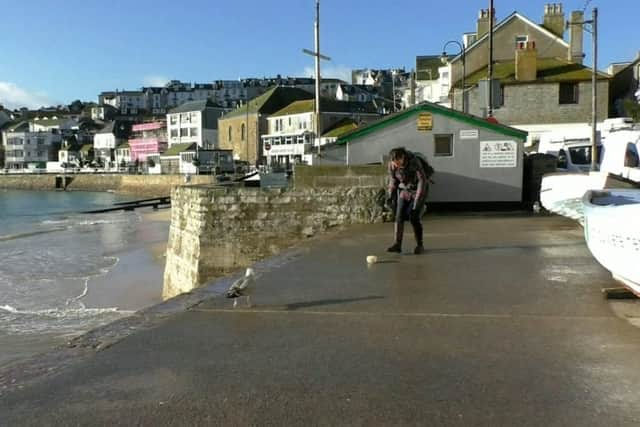Staring down a seagull will stop it from stealing your food, scientists claim


Staring at seagulls stops them stealing your food, according to new research.
The scavenging birds are a nightmare for both locals and holidaymakers flocking to the coast, often snatching ice cream and chips out of people's hands.
Advertisement
Hide AdAdvertisement
Hide AdNow scientists believe they have come up with a simple solution - which is to look the birds straight in the eyes.


They put a bag of chips on the ground as bait and tested how long it took herring gulls to approach.
With a human watching, this was an average 21 seconds more than when they looked away, with most keeping well away.
Lead author Madeleine Goumas, of the Centre for Ecology and Conservation at Exeter University's Penryn Campus in Cornwall, said: "Gulls are often seen as aggressive and willing to take food from humans.
Advertisement
Hide AdAdvertisement
Hide Ad"So it was interesting to find most wouldn't even come near during our tests."


Herring gulls, the most familiar of Britain's seagulls, have a reputation for pinching people's food.
So postgraduate student Miss Goumas and colleagues tempted them in coastal towns with chips to see if staring reduced their attempts to pilfer.
Gulls approached more slowly or not at all when they were being watched. But many approached within seconds when the experimenter looked away.
Advertisement
Hide AdAdvertisement
Hide AdMiss Goumas said: "By keeping an eye on gulls, people could potentially save their lunch while reducing negative encounters with this rapidly declining species."


Her team attempted to test 74 birds along the Cornish coast but most flew away, with just 27 approaching the food.
The study published in the Royal Society's Biology Letters focused on the 19 that completed both the "looking at" and "looking away" tests.
Miss Goumas said: "Of those that did approach, most took longer when they were being watched.
Advertisement
Hide AdAdvertisement
Hide Ad"Some wouldn't even touch the food at all, although others didn't seem to notice that a human was staring at them.
"We didn't examine why individual gulls were so different - it might be because of differences in 'personality' and some might have had positive experiences of being fed by humans in the past."
She added: "But it seems that a couple of very bold gulls might ruin the reputation of the rest."
Gulls learn quickly
The species is on the UK's Red list of Birds of Conservation Concern. The British population fell by 60 percent between 1969 and 2015 with plastic pollution blamed.
Advertisement
Hide AdAdvertisement
Hide AdSenior author Dr Neeltje Boogert said: "Gulls learn really quickly, so if they manage to get food from humans once, they might look for more.
"Our study took place in coastal towns in Cornwall, and especially now, during the summer holidays and beach barbecues, we are seeing more gulls looking for an easy meal.
"We therefore advise people to look around themselves and watch out for gulls approaching, as they often appear to take food from behind, catching people by surprise.
"It seems that just watching the gulls will reduce the chance of them snatching your food."
Advertisement
Hide Ad